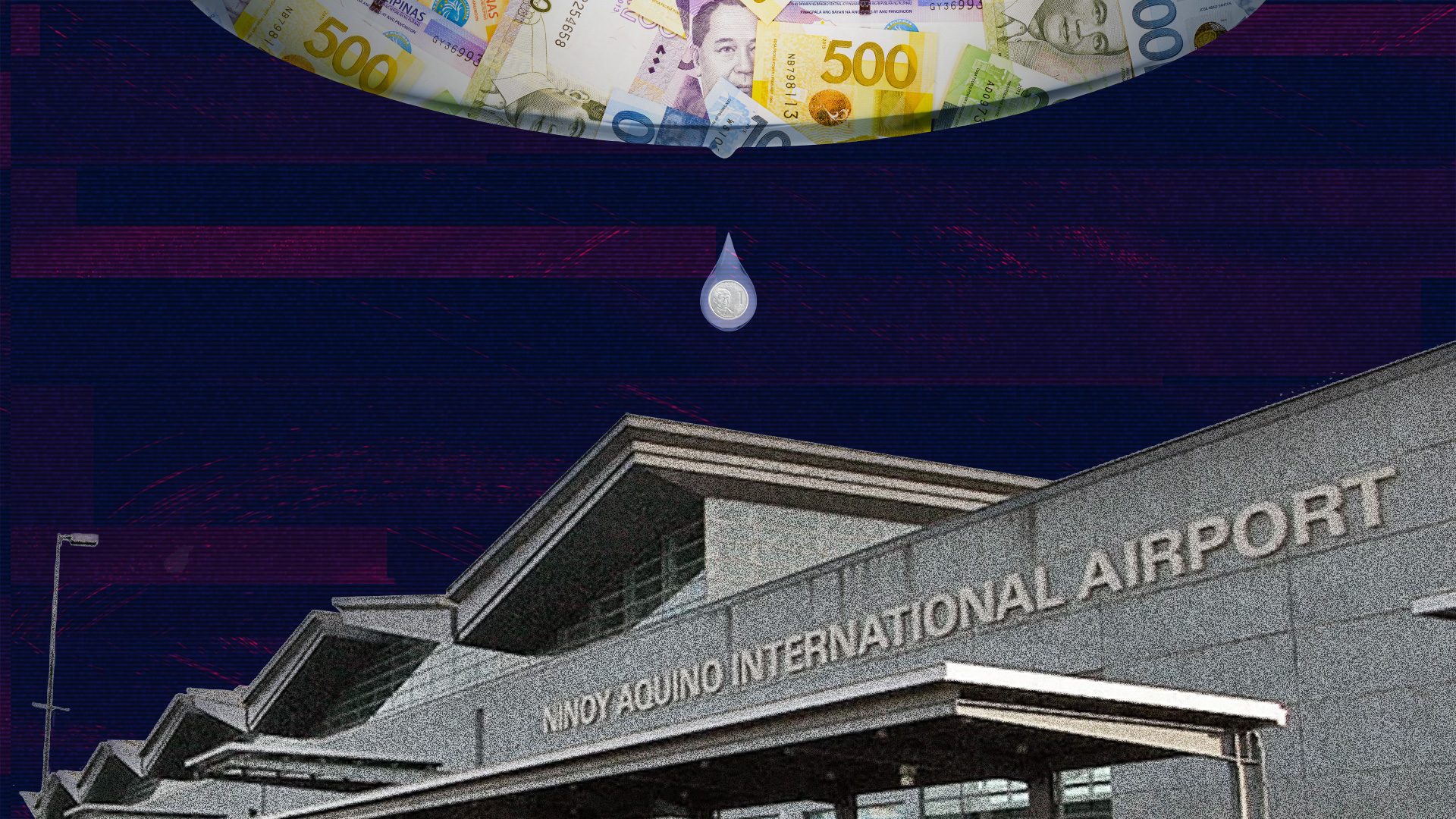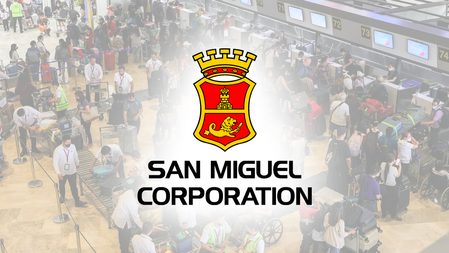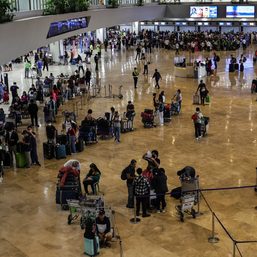SUMMARY
This is AI generated summarization, which may have errors. For context, always refer to the full article.

MANILA, Philippines – The race is on to attract parties to take on the massive P170.6-billion rehabilitation project of the country’s ailing international airport. So far, eight potential bidders have already signaled their interest in the Ninoy Aquino International Airport (NAIA).
As of Monday, November 6, the Department of Transportation (DOTr) confirmed that the parties who bought bid documents include the Manila International Airport Consortium, San Miguel Corporation, GMR, Spark 888 Management, Asian Airport Consortium, Cengiz Insaat Sanayi ve Ticaret A.S (Cengiz Insaat), Incheon International Airport Corporation (Incheon Group), and Limak Group.
Each of them must have paid a non-refundable P2.75 million to be considered prospective bidders and be able to access the concession agreement and other documents that provide background information on the project. (READ: Bidding for NAIA rehab, privatization begins. Here’s what it covers.)
Meanwhile, the government has even prepared a video, obtained by Rappler, used by Transportation Secretary Jaime Bautista to promote the airport to foreign investors during roadshows.

The government hopes that their private sector partner can help turn around NAIA’s reputation as one of the worst international airports in the world. But what exactly do we know about these potential bidders so far?
MIAC
The Manila International Airport Consortium (MIAC) has been involved in rehabilitation talks since the government made privatization plans public. And now, they’re back in the race as MIAC confirmed in a statement that they’re currently assessing the documents to “determine the consortium’s next steps.”
MIAC is composed of some of the biggest conglomerates in the country: Aboitiz InfraCapital, AC Infrastructure, Asia’s Emerging Dragon Corporation, Alliance Global-InfraCorp Development, Filinvest Development Corporation, JG Summit Infrastructure Holdings Corporation, and New York-based Global Infrastructure Partners.
Earlier this year, MIAC sent an unsolicited proposal for a P267-billion rehabilitation program that would supposedly double the declared capacity of the country’s main gateway from 31 million passengers per year to around 70 million in the long run.
The government ultimately chose to reject their proposal in favor of a public bid.
SMC
San Miguel Corporation (SMC) is one of the country’s largest conglomerates with interests in food, beverage, energy, infrastructure, and telecommunications. In 2022, SMC’s consolidated revenues reached P1.5 trillion.
This wouldn’t be the first time SMC has ventured into the aviation industry. San Miguel, through its subsidiary San Miguel Aerocity Inc., is also developing, constructing, operating, and maintaining the New Manila International Airport, also known as the Bulacan International Airport.
While San Miguel bagged the contract to build and run the Bulacan airport for 50 years, the project has also been marred by controversy. Environmental advocates say that the construction of the airport is among the contributing factors to flooding in Bulacan. There were also concerns that the project would displace communities and disrupt the local ecosystem
GMR
The GMR Group of India is also among the parties that have already purchased bid documents. The conglomerate operates several airports in India and also has other infrastructure projects in Singapore, Indonesia, and Greece.
In the Philippines, GMR also partnered with Megawide to develop and operate the Mactan Cebu International Airport, which recently became the first airport in the Philippines to receive the Airport Customer Experience Accreditation for Airport Service Quality from the Airports Council International.
GMR and Megawide were also part of a failed bid to rehabilitate NAIA in 2020. Although Megawide and GMR had already obtained original proponent status for the project, MIAA revoked it in late 2020 after the National Economic and Development Authority raised concerns over insufficient equity in the proposal.
Cengiz Insaat
Cengiz Insaat was the sixth potential bidder to express interest in NAIA, purchasing bid documents on September 20. It is a Turkey-based infrastructure company founded in 1987.
According to its website, Cengiz Insaat has experience in building airports, highways, tunnels, bridges, railways, subway, and other infrastructure projects across the world.
Cengiz Insaat was also part of the joint venture, along with fellow potential NAIA bidder Limak Group, that constructed the new Istanbul Airport.
Incheon Group
The Incheon Group, operator of the world-renowned Incheon International Airport, has also expressed interest in NAIA. In late October, Bautista confirmed that the group was the seventh potential bidder to purchase bid documents.
South Korea-based Incheon Group is the operator of the Incheon International Airport, the largest airport in the country and one of the busiest airports in the world. It ranked as the fourth-best airport in 2021, and also placed among the world’s cleanest airports, as rated by airport and airline rankings company Skytrax.
Limak Group
The Limak Group is the latest big player that has expressed interest in the NAIA rehabilitation project, now becoming the eight potential bidder to purchase bid documents, Bautista confirmed on November 6.
The Limak Group is a Turkey-based company with interests in construction, aviation, tourism, and other sectors. It handled airport projects in Russia, Senegal, and Egypt.
Along with Cengiz Insaat, it is part of the joint venture that constructed and operated the Istanbul Airport, among the world’s largest and busiest.
What happens now?
Other prospective bidders include Spark 888 Management and the Asian Airport Consortium, but the DOTr has not given any further details about the two parties. Industry sources Rappler spoke with also said that they have yet to identify the personalities involved in the two groups.
Under the Public Service Act passed by former president Rodrigo Duterte, airports, airlines, railways, and other public utilities can now be fully owned by foreigners – and the DOTr plans to take advantage of this liberalization.
Bautista met with interested foreign investors in Singapore on September 14 and 15. Days later, he also flew to Paris for the second leg of the roadshow.
A pre-bid conference will be held on September 22, after which the government will conduct one-on-one meetings and site visits with prospective investors. The bid submission deadline is on December 27, 2023, after which bids will be opened and evaluated by the DOTr.
“We are expecting that they will be able to meet our deadline to submit their proposal by December 27. As far as the bidding is concerned, all of them will submit the best and final offer by December and after that, we will evaluate the bidding and award by the first quarter of 2024,” Bautista told reporters on November 6. – Rappler.com
Add a comment
How does this make you feel?


![[Vantage Point] NAIA rehab goes full throttle… finally!](https://www.rappler.com/tachyon/2023/09/NAIA-rehabilitation-full-throttle-September-2-2023.jpg?fit=449%2C449)





There are no comments yet. Add your comment to start the conversation.